What does it take to grow a massively successful YouTube channel while building a thriving business? Today, our guest shares his journey of doing just that while staying true to his mission.
Justin Rogers boasts over 700,000 YouTube subscribers and half a billion channel views. In this episode, Justin and I talk about his origin story, working as a pressure washer and then starting up his own business while attending college and living at home with his parents. Along the way, he realized he could teach others by recording and sharing videos online. He wasn’t sure where all of this was leading, but Justin instinctively knew he had to lean into his intuition, trusting that his path would reveal itself. Operating from a place of super-low overhead allowed him the freedom to take chances he might otherwise not have taken. Justin believes when you solve problems for enough people, success naturally follows. He’s here to discuss that mindset and approach, break down specifics behind what works on YouTube, and impart wisdom on decision-making and achieving big goals. We unpack all that and more on today’s episode, so without any further ado, on with the show!
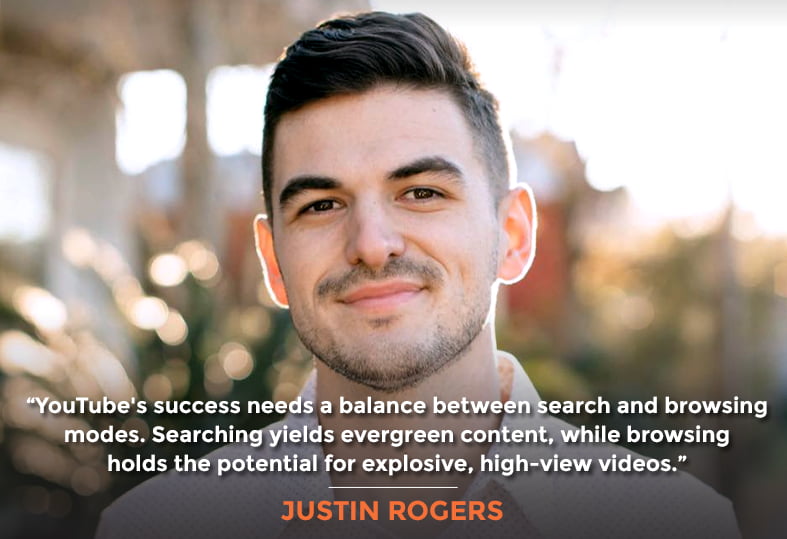
In This Episode
- [01:52] Justin Rogers shares his journey of growing a massively successful YouTube channel and business while staying true to his mission.
- [05:06] Stephan and Justin discuss the 10x thinking, with examples of annexing businesses and lifestyles for bigger markets.
- [10:38] Stephan emphasizes the importance of visualizing success and feeling “shine” to motivate personal and business growth.
- [15:54] Justin uses the law of reciprocity in internet marketing, where providing value for free can increase a customer’s willingness to purchase a paid product.
- [18:53] Stephan and Justin speak about MrBeast’s success on YouTube.
- [27:17] Justin highlights the need for mindset shifts regarding media consumption monitoring and seeking out free training on YouTube to fast-track success.
- [29:01] Stephan and Justin define mentorship and coaching.
- [34:14] Justin discusses optimizing YouTube videos for hook, retention, and engagement.
- [37:32] Justin reveals how he prepares for opportunities, prompting him and Stephan to give away learning strategies.
- [43:33] Stephan describes his process of building a team.
- [46:54] Justin and Stephan go over the intersection of business and spirituality, with Stephan sharing a spiritual awakening that leads to increased creativity and miracles.
- [51:00] Justin and Stephan explain the value of finding innovative and open-minded educational options for children.
- [55:57] Stephan recalls his experience with one of his guests in his show, Get Yourself Optimized. He recommends books on spirituality and psychic healing.
Justin, it’s so great to have you on the show.
Thank you so much, Stephan. It’s a pleasure to be here.
We were chatting about all sorts of fun stuff before recording here, things like synchronicity. I was just curious to hear the most serendipitous or synchronistic thing that happened to you to get you to this place of being a huge YouTuber. When you started, you were just working for yourself doing pressure washing. There must’ve been some miracle or something that happened. It’s like, “Yeah, you can’t explain this one away.”
I don’t know if I can pinpoint it back to one point. However, it was like how everything unfolded in front of me. I just followed my intuition. I started off doing landscaping for a landscape company. I just realized this is something that I could do on my own. That’s when I began my journey of working for myself.
Then, from that point, I saw people on YouTube getting views, offering services and recording themselves doing things that I was already doing, such as pressure washing, landscaping, and things of that nature. I said, “Well, let’s go ahead and start recording ourselves.”
I’ve always had the ability to follow where I felt I should go, and then everything unfolded from there.
I started recording myself, and before you know it, I started doing videos with others. I met my business partners now, and slowly but surely, everything unfolded perfectly because I was always following the path of least resistance.
I wish I could pinpoint it back and say it was this moment, but I’ve always had the ability to follow where I felt I should go, and then everything unfolded from there.
Amazing. Do your business partners now feel like they were destined to be your business partners? You may have a soul contract with them that you chose each other before incarnating.
I don’t know of that specifically. One of the guys, my first business partner, led me down this path of building out courses and selling info products to my audience, which opened me up to a whole other world, which was incredible.
I then took on another business partner with me for about a year. As soon as that relationship ended, I had another person come into my life, and he’s been an even better partner. Just how everything’s unfolded feels like it was meant to happen that way.
Even how you and me met was funny enough. I was searching up. As you guys heard, we have QuoteIQ. We built the website and are trying to get more traffic to it, so I was looking up SEO experts. I DM’d you, and it just so happened that you had already seen some of my content and asked me to come on the show. It’s just very organic. Now, you’re going to help me with some SEO, and it’s cool that I get to come on the channel and talk about some cool stuff.
That’s awesome. Everything’s so connected.
It’s just that you follow the path, and then things just come your way. I think that’s how you know you’re on the right path.
It’s funny, though. I had a business partner, but our relationship ended. It was only about a year. At the time, I thought it was a considerable amount of income that I relied on this person for, and it felt like the end of something. But really, it was the beginning because it created a space for somebody else to fill, and that’s my partner with whom I started QuoteIQ. I don’t know; it just happened for a reason.
That’s right. Everything does, I think. I’m really keen on the concept of 10X Is Easier Than 2X. I’m reading a book—it’s by Dan Sullivan and Dr. Benjamin Hardy—and it sounds counterintuitive that it’s easier to 10X your business than 2X it because you have to think differently, be different, and most importantly, not do most of the things that you do now to 10X your business, your life, your relationship, or whatever it is that you’re trying to 10X or to leapfrog.
If let’s say it’s a million-dollar-a-year business, getting to $2 million feels like a lot of hard work, a lot of late nights, and just having to do much more. But if you have to be 10X, that means you have to be different. You can’t operate with the same rules and same mindset that would get you to 2X. You have to completely reinvent yourself and your business.
Become a millionaire not for the million dollars, but for the person that you have to become in order to become a millionaire. – Jim Rohn
This book has been just phenomenal. I’m enjoying reading it, and I’m going to have to show up differently and say no to most of the things that I say yes to now, and the things that I choose to do, most of them will have to go by the wayside.
Have you heard of this book? Secondly, what do you think of that concept? Thirdly, give examples of you 10X-ing your business and lifestyle.
Ben Hardy, I found him on YouTube a while back. I did see that book. I need to get it. It reminded me of the Grant Cardone book, The 10X Rule. I just love that principle that it’s easier to 10X than it is to 2X. It reminds me of a Jim Rohn quote when I hear about it. Jim Rohn always said, “Become a millionaire not for the million dollars, but for the person that you have to become to become a millionaire.”
It’s a similar concept of letting us 10X for the person we must become to 10X rather than staying the same and doing the same things to 2X. But to push your business that far out in front, you really have to become somebody else. I love that concept.
As far as me 10X-ing, it’s always been an opportunity to find the opportunity to go for bigger markets. When you work for somebody, the only way to earn more money is to become more valuable to that person. At the end of the day, you’re still earning them an income.
From there, I was like, “Okay, well, I’m only going to earn so much working for someone else. Let me work for myself because then I can dictate my own price.” I then set my own price for my own hours.
Of course, there’s more risk that comes with that. But then, once I had scaled a couple of different service businesses, I was like, “Okay, how do I go for more? I want to leverage something that isn’t my time anymore. I don’t want to depend solely on my time to make money.”
That’s when I shifted to YouTube because I can make a video that can live forever. It can work for me while I’m sleeping, driving traffic, getting ad revenue, and doing all the things we love.
When you work for somebody, the only way to earn more money is to become more valuable to that person.
With regards to finding that going from 2X to 10X, it’s always been a shift for me looking for bigger markets to serve. Hopefully, that answers.
Also one other thing is mentors. That is incredibly helpful because if we think of looking through a lens, essentially, this is where your current visibility is. When you 2X, you only increase this by two times, but when you get a mentor, your vision just opens up. You could see so much more because they’re not in your business; they’ve taken out that emotional attachment, and they can just see more.
I love what you’re saying about essentially making money while you sleep by having a monetized YouTube channel. You don’t have to go out and do another job. You don’t have to win another client or a customer. You don’t have to work extra hours. That’s a mindset shift. That’s 10X thinking versus the 2X thinking.
“What if I get somebody to work for me and help me with these landscaping jobs or help me with the pressure washing jobs?” No, you just went to complete reinvention, which I think is brilliant. It’s a big leap. It’s a big risk. Most people are uncomfortable doing that. What made you comfortable with reinventing yourself in that way?
I didn’t have a lot in line for a while. When I was younger, I was living with my parents. When I started this journey, I was actually in college. That’s one thing. My parents guilt-tripped me so much to go to college and follow this path. “This is what people do. They go to college and get a good job,” and it wasn’t for me. But I didn’t make that excuse for myself.
I was just living with them. I went to college, but I also had my businesses, and I just leveraged the fact that I didn’t have a family. I didn’t have a mortgage. I drove a big white van around. It would be embarrassing for most people, but I embraced it. I loved it. I put some subwoofers in there. I made it my own. It was cool. I didn’t overextend myself with how much money I was making, and it allowed me to take chances and create my own opportunities.
I also credit my dad a lot. My dad was always just going out there to make it happen. “If you make a mistake, then we’ll make an adjustment and find a different way.” He didn’t necessarily see YouTube as well. I wish I had started earlier, but I did it early on. That’s what I always encourage people to do.
Also, if you want to do the same thing, and you’re overleveraged with a job, family, and everything, you must find time at night. You have to find time early in the morning, and you just have to make it happen slowly but surely until you can replace income.
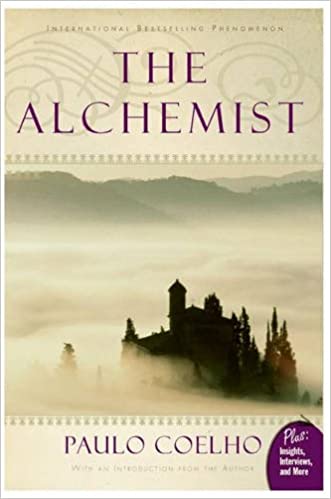
You have to see a compelling future and believe in yourself enough to know that that’s an inevitability. If you want to be a best-selling author, you’ve got to see that as real. It’s the law of attraction. The law of attraction does not work if you imagine that checks are showing up in the mailbox and the bills have stopped. You have to feel the feelings of what that’s like.
I’m being hypothetical here, whatever that huge 10X or 100x goal you have. If you see that as inevitable and you step into that future version of yourself experiencing it and feel those feelings, there’s an actual feeling of success.
BJ Fogg, who was a past guest on this podcast, coined the term ‘shine’ to refer to the emotion of feeling successful. People will take on a habit and continue it if they’re feeling shine. If they’re not feeling “shine,” they will drop the new habit. If somebody is not feeling that shine, they won’t be motivated to keep going.
We’re talking before the recording about Bob Cialdini and his book Influence, which you’re reading now. Bob knows how people are motivated to do things and what principles underpin those motivations. It’s fascinating stuff.
I’m curious to hear how you are incorporating principles of influence, better habits, personal development, and self-improvement into your life and business to make that next 10X leap.
I completely agree. To go back and touch on the other point, I think my dad gave me a little bit of a superpower because I was doing a bunch of stuff with my dad, starting a couple of different side businesses with him, and he was helping me a lot. I did a lot of work upfront with no guaranteed return, so I don’t have a problem even to this day putting in a lot of work with no guaranteed return.
We talked earlier about how we built the CRM. You can build it, but that doesn’t mean anyone’s going to actually purchase it, use it, or anything to that extent. I’m always okay with taking on the in-time investment for no return, knowing deep down within myself that it will succeed and knowing it so greatly that nothing will ever push me off of that path. That’s something that I’ve always just stuck to.
With regards to the influence, man, that book has so much great stuff. I’m only about to finish the second chapter, but it’s about the law of reciprocation and how people feel the need to reciprocate when a gift is given. They’ll reciprocate by giving more or purchasing more.
Reciprocation is how we bring customers into our business. It’s the gift of something.
I’m always trying to figure out how I can make an offer better, offer more value upfront in exchange for more on the backend, and leverage relationships. As far as that book goes, reciprocation is where I’m currently, and that’s how we bring customers into our business. It’s the gift of something.
Oftentimes, a lead magnet or something was given for free. You take advantage of it in exchange for information. In return, that company will market to you and things of that nature.
The coolest thing about that book is that every principle matches an example. I think more books should copy that. I highlight almost everything on every page because it’s just as good as I’m reading it.
What you said about reciprocity or reciprocation is an example from another internet marketer, Frank Kern. He talks about results in advance. When you can give somebody a free result, that law of reciprocity kicks in.
When you present an offer to them of a paid program, they are much more inclined to say yes and associate the value they received already for free from you with the value they received from the paid program. So they’re just lumping it all together and saying, yeah, the best investment I ever made was buying that YouTube coaching program with Justin because I completely transformed my business, my YouTube presence, and everything.
Maybe they got the best stuff for free from you and then paid for the rest, but they associated all of it, including the free stuff, with their results.
He calls to give them results in advance for free. For example, he liked to share one of the courses on how to play the guitar. The freebie, the free lead magnet portion or whatever, would be, let’s say, “How to play the F chord.”
If somebody masters the F chord—they were struggling before, and they got that for free from you—they feel that sense of shine, that feeling of success, and they want to partake in your offer of the entire course, master the guitar and not just learn how to play the F chord. So they sign up and associate the value of what they got for free in learning how to play the F chord from you and all the other stuff in the paid course.
Provide value upfront and offer a product along with that.
I love that principle. That’s pretty much my YouTube channel. We sell a bunch of info products on the channel, which just takes people much deeper and puts things in a linear format for them. But that’s the whole basis of everything: to provide value upfront and offer a product along with that.
As you mentioned, people who have found a lot of value will want more. They’ll be attracted to the paid product, and that’s how it goes.
You and I did an introductory call, and I loved it. I told my partner we have to do an SEO call with you in a paid call. There’s something to be said about the law of reciprocity.
One of the coolest things—I was reading about it the other night—was that this hotel had done a study and saw that offering a perfect experience to the customer didn’t get them as good of reviews as offering a flawed experience to the customer but then making it right.
They gave this example of a lady who wanted to play tennis. Her kids had no tennis rackets because they were all being used currently. The hotel staff said, “Don’t worry about it. We’ll send somebody out. We’ll get them to go get some new tennis rackets for you guys.” They got the new tennis rackets and brought them back. Then, the lady booked a whole holiday stay for her entire family because the hotel had gone out of their way for them.
But it was just so crazy that by offering a perfect experience to somebody, they won’t value it as much as a flawed experience that is made perfect. I just love that principle.
Of course, perfect is the enemy of done. If you’re waiting for perfection and anything, you’ll wait a long time. I forget who I heard this from, but it’s a great quote that a perfectionist is the same as somebody with no standards because nothing gets done either way. Nothing of any real value gets done either way.
A cool side to this is I was watching a video the other day, and it was on Picasso. Apparently, he painted two or three paintings daily for his entire life, even until the day before he died. He had amassed 50,000 paintings. You only hear about a select few that sell for a tremendous amount. You don’t hear about all the other paintings that he created. It shows that perfect is the enemy of done because imagine if he had tried to perfect everything, he might have only created a thousand pieces. But instead, he had 50 times that amount and some of the most famous art we have today is from Picasso. Pretty incredible.

I look at the same thing with my YouTube channel. It doesn’t matter how the video performs. I have best practices with regards to how my videos perform, but I look at it as a daily exercise, a daily discipline for myself to put out so much content every single day, because I know that out of so much content, there are ones that are going to hit, ones are going to do really well, and of course, you’re going to have the ones that don’t do as well.
It’s like weightlifting for people. People go weightlifting every day or whatever. I don’t resonate as well with that. I wish I did because I’d probably look more physically fit, but I just have my discipline in another area, and that’s YouTube.
I learned from the book 10X Is Easier Than 2X that MrBeast was coaching his students on this principle of focusing on just a small number of videos to make better than anything else on the Internet in that niche or topic. It doesn’t have to be twice as good. It just needs to be at least 10% or 20% better than the best out there.
If you just laser in on these handfuls of videos instead of trying to do every video better—every video with maybe double or ten times the view count, watch time, and the audience retention graph being ten times better or whatever—if instead you just laser in on a small number of videos that will transform your whole channel and business. I just think that resonates on so many levels, and I think it applies not just to YouTube but to business and life.
A perfect YouTube video achieves a 100% click-through rate and engages every viewer until the end. Share on XAbsolutely. I would love to go back to before MrBeast had gotten on YouTube and just take a look again because if you look at the progression of MrBeast, the production quality of these channels has gotten to the point where it’s like you have to almost produce a TV show now to garner a ton of attention. Either that, or it’s got to be something crazy or new to people. I love what MrBeast has done. He’s very inspirational just from being able to garner so much attention.
When he started, he knew he would be one of the biggest YouTubers on the planet. He just knew that that was destiny and an inevitability.
Like we were talking about before, he followed the path and continued, having that vision of the future. Even when everything was bad, he was able to see it through. It’s either you die, or you keep going until you get there.
There’s no such thing as failure.
Stephan, what do you think about this? As far as MrBeast goes, “I feel like there’s a place you would reach that would be the pinnacle.” MrBeast is at the top. I wonder how you continue to be happy even with that success?
A lot of us gain our happiness from projections into the future of where we think we can go and how we think that would make us feel, but being the one at the top. You must have more intrinsic happiness, but how do you feel about that? You’re one of the top players in the SEO game. You know what I mean.
A lot of us gain our happiness from projections into the future of where we think we can go and how we think that would make us feel, but being the one at the top.
I separate my ego from my soul knowing. “My ego would feel disappointed, or is this all there is after hitting a major milestone?” But here’s the secret. If your soul knows that you’re just here to experience, you’re here to grow, and you’re here to cleave to God, to become one with Him, and to shed the illusion of separation, then it’s all just a beautiful, elaborate video game. You’re just having fun doing it, and there is no big letdown because you finally hit the pinnacle. I’m like, now what?
Those people who get depressed after they hit a major milestone, sell their business, or receive a big check—I think they were relying on their ego and not tapping into their soul’s mission. That’s my guess.
I’ve certainly been disappointed after hitting major milestones prior to my spiritual awakening, and that’s how I see it now, looking back. That was all part of the experience of recognizing that ego is not where everything is. It’s a big letdown.
I’ve been making a conscious, deliberate effort to celebrate small wins. Sometimes, I had this tendency to push it out a little further, “If we can just get here, if we can get there, it’s going to be great.” Then I sat back, reflected, and looked around. I was like, “Man, I got a beautiful home, a family. This is great. I’ll look back.”
I hear this saying all the time, “If you were 60, you’d pay any amount of money to be back young and healthy again.” I sit and reflect on that, resonate with it, and say, “No matter if I had a nicer car in the driveway or I was in a better house, it’s great right now.”
I’ve been trying to get better at celebrating when I get to the 10X, but I’ve also been trying to do better by enjoying that journey because I think you can get so tunnel-visioned that it’s so empty on the other side.
I hear you. If you don’t celebrate your wins, then, for one, you’re not motivating the reward center of your brain to keep going and do more. Secondly, you’re not being grateful to the creator for the abundance that you’ve been given. It’s disrespectful. So celebrating is a requirement.
Also, if you want to try to live in both worlds simultaneously, the physical world and the metaphysical, the spiritual or the ethereal, try to have this sense of watching yourself as this time is playing out.
When you commit to growing on YouTube, you need to develop best practices. Consistently reflect on how your videos perform and how you can grow as a digital creator. Daily content creation requires self-discipline. Share on XWe’re on a podcast having a conversation, and I could just imagine my soul watching this moment like you have the near-death experience some people have where they’ll see their whole life flash in front of their eyes. It’s called the life review, and they’ll see, “Oh yeah, I remember that moment. I wish I wouldn’t have said that and all that stuff.” It happens in a flash, but it’s a whole lifetime just playing back.
Imagine having that happen, but you’re watching it from the ceiling, watching this moment unfold. It’s like my kid wants me to put the phone down and read him a story. “Am I going to do this important email because it needs to go out now and neglect my son, or will I put the phone down and give him 100% of my attention? What will my soul think or feel about this moment, looking back on a life review floating at the top of the ceiling? What do you think of that perspective?”
That’s super cool. The other thing is on the other end of that 10X, we placed the prize at the other end. But when you think about it, all you really want is the feeling of accomplishment. That’s when I try to remember that, and I try to feel the accomplishment as already being done. Because at the end of the day, that’s all I wanted anyway. It was just this magical feeling I thought I would have. That’s a beautiful place.
I don’t think anybody beginning their journey should do this. In the beginning, it’s more like you just have to hammer in, hammer in.
Hustle and grind.
That’s right. You have to do whatever you can to get ahead. But then, once you get to a certain point, it’s like the law of diminishing returns. I just think you have to enjoy the journey. I completely agree. I love that perspective of trying to think into the future. I always do that, trying to project myself and thinking, “What will I think about this?”
Ben Hardy has a book all about this called Be Your Future Self Now.
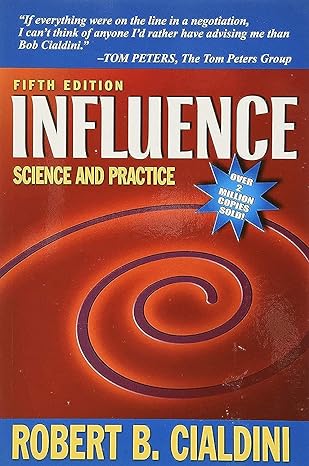
Oh, that’s beautiful. I love it. I’ve done a lot of that as well. I have thought about who I wanted to be, and then I’ve tried to create that person in the now, think like that person, speak like that person, and act like that person.
I saw this video on Andrew Tate where he does this self-hypnosis. People will obviously have their own opinions on Andrew Tate, the things he says and that nature, but the things he says align with who he wants to be. So every time he speaks, he comes more in alignment with that, and he’s self-hypnotizing. Even though he might not make hundreds of millions of dollars, he might say it, and then it becomes because he’s aligning with that person. I love that stuff.
Amazing. Let’s go back to those early days when you worked at a landscaping company and maybe even started as a self-employed pressure washer and landscaper. What mindset shifts or nuances make all the difference for somebody who might even have a YouTube channel doing landscaping, drainage, shoveling snow, etc.? I actually have a client who’s a landscaping company.
What would you tell somebody who’s in that world, building a business or a career doing manual labor for others, and you want them to make that huge leap forward? What are some of the things that would make a difference for their YouTube channel, for their business, for their mindset?
First and foremost, as we talked about before, I think about getting a coach because someone has taken the path and is on the other side of the path. The funny thing is we do a lot of coaching. Like I said, we sell info products on the channel. We have a coaching group called “The Inner Circle,” where we do calls here.
I’ll often see people follow the same path that I did, like realizing the opportunity and starting to work towards it. Eventually, they get to a point where they’ve maximized their business and start looking for another one.
I think it’s always monitoring yourself, obviously. Get mentors, get people who have done what you want to accomplish, and then get extra training and buy courses. I love extra info products and things of that nature.

I always try to think in terms of, like, I hate to say this, but my mom and stepdad sit on the couch every night and watch a new series. I think about how much time in their lives they have spent watching new series on television, and I try to think to myself, it makes me sick. I’m like, I need to be taking the time every night to become better in the direction in which I plan to go.
For anybody in that situation where you’re just starting in whatever field it is, you can get free training on YouTube. I would be very cognizant of what media you consume when you’re consuming it. I’d get off of Netflix.
When I was doing pressure washing and stuff, Stephan, I was studying YouTube. I would listen to how to grow on YouTube six or seven hours a day until it was so ingrained in me that things started aligning and connecting. And now I can see things that I couldn’t see before.
I would employ anyone to learn from people who have done what they want to accomplish. You’ll be fast-tracked and way ahead of everybody. I’m sure you’ve also seen that Stephan, with SEO and stuff.
Do you see a difference between a coach and a mentor? Or are those pretty much synonymous?
I’ll be honest. I have a coach and a mentor. I feel like they’re synonymous. I don’t know. I guess mentorship is a little bit different. It’d be more like one-on-one, at least that’s what I feel like, and coaching could be like a course or something of that nature. I haven’t had a ton of success with mentors.
When you pay, you pay attention.
I’ve paid people for calls and things of that nature, but I don’t know. I may need to dig deeper into that. But coaching, definitely. I’ve bought all kinds of courses. I’ve studied a lot, read books, and things of that nature. What about you, Stephan? Can you speak to what the difference is?
My understanding is that mentors take you under their wing and are mostly not paid for it. I don’t really have many mentors or have many mentors I can point to who would say, “Oh, this person took me under his or her wing, taught me the ropes, and so forth.”
I pulled myself up on my own bootstraps, but I got a lot of coaching by hiring coaches, paying the money, buying courses and books, and always learning. It’s more of someone who’s investing in you. It might be a mentor because they don’t get monetary compensation, but they take you under their wing because they like who you are, what you stand for, and what you’re up to.
I would love that. I don’t know how you’d find one, but people also need to pay to a certain extent because when you pay, you pay attention.
I love that statement. I say that a lot. When you pay, you pay attention.
Unless you have some skin in the game, you’ll probably not do everything the mentor says. I would love mentors. I love the idea. I get tons of DMs from people who probably would love for me to mentor them, but I’m not in a space. If I was like 70, but it’s a pay-to-play deal. If you want the best information, you have to pay. If anybody who watches this knows where to find a good mentor, please let us know.
Would you be interested if MrBeast or Casey Neistat wanted to mentor you?
I always think in terms of how valuable someone’s time is. For somebody whose time is super valuable, it would feel greedy of me to be trained for free by this person. It could be like an apprenticeship or something; you’re learning to trade, but even then, there has to be some value exchange. Either that, or you might be a leech.
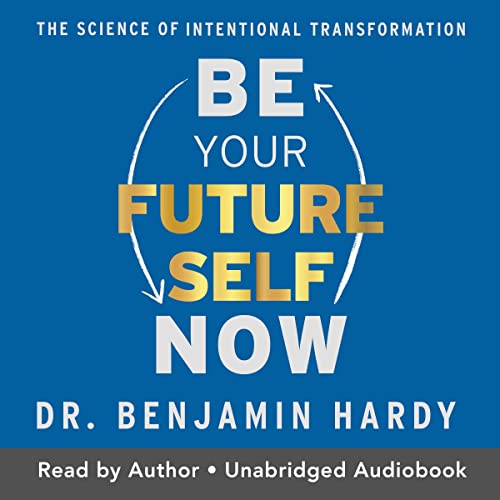
What are some of the best practices for YouTube that moved the needle? Is it thumbnails? Is it the titles? Is it the playlists? Is it the production value of the videos? Is it the hook at the beginning of the video, like the first 20 seconds? Is it the end card? What’s the secret sauce here?
The first thing to recognize is that there are two ways that people find you on YouTube: browse and search. To have a good balance with your channel, you have to blend the two because, essentially, searching is evergreen content. It always feeds into the channel. But you also need to browse because those videos can explode and get tons of views. Having a blend of both is the best way to go.
Then you have niching. I asked you earlier why you blended your channel with two different podcasts. Ideally, people interested in spirituality would probably be interested in business, but I don’t know if that’s a crossover you necessarily want. You’d want to cater to one specific audience. You’d want to make sure you have browsed. You want to make sure you have search content.
Then, when it comes to video, there are best practices. The front end needs to hook, and then the video needs to retain people for the longest time possible. Then, with regard to thumbnails and titles, those are your click-throughs.
Essentially, the perfect video would have a 100% click-through rate, meaning every person the video is presented in front of clicked the video. Then, every person who clicked the video watched until the end. That video would be viewed by every single person on YouTube.
When people say, “The YouTube algorithm doesn’t like me,” or whatever the case may be, it’s because you’re not doing a good enough job of getting the click and holding the attention long enough into the video to send the signal to YouTube that this is a good video.
Essentially, that’s how every algorithm works, which is the crazy part. When talking about TikTok, YouTube, and Instagram, all these platforms just want longer retention and longer time on the platform. If you can figure out how to make somebody click through and watch your video, you have a recipe for success.
Thumbnails and titles are your click-throughs.
It’s harder than that, but everybody would be good at it if it were that easy. Figuring out what those things are that make people do that is the hard part.
How do you systematize this to optimize for the hook, retention, click-through, and all of that? Are you A/B testing your thumbnails and titles? Are you conducting focus groups or surveying your audiences? How do you dial this in?
The beautiful thing is that YouTube has already surveyed your audience. If you type in whatever keywords to whatever video you’re going to make, you can see which videos have the best titles and thumbnails by seeing which ones pop up first and which have the most views. Then, from there, it becomes a game of, “Okay, we’re going to recreate this.” Or you could reinvent the wheel, but why?
Tony Robbins says, “Success leaves clues.” It might have been Tony Robbins. I do that a lot. If I have an idea for a video, I’m going to search for the keyword. I’m going to see who’s ranking one and what the titles look like so I can reverse-engineer it.
Then, regarding the structure of the video, I started treating the first 30 seconds as a short. Many people know that short-form content is very punchy, so I want that hook to be really punchy. I’m going to tell you exactly what the video’s plans are. I’m reaffirming to the viewers that they’ve clicked on this video for this purpose, and I will serve that purpose.
Another thing that I’ve been doing for anybody who listened this far into the podcast: I like to put a carrot out. I say, “Hey, if you stick around until the end, I will give you this super cool thing.” I throw the carrot out to increase my retention.
Another thing that I did was, and I did this early on, I had this thing called the “word of the day.” Anybody who watched until the end of the video, I would give the word of the day. If you made it this far in the video, comment below the word of the day, and I will hashtag you a real one. But it’s essentially just me acknowledging that you made it this far in the video, and I appreciate you for doing so.
Success leaves clues. – Tony Robbins
Having that back there would ensure that many people knew it was there, increasing retention. It also increased my engagement on the video—it was twofold.
Another little trick here is if you have pitches in the video, and somebody makes it to the word of the day, you know that that person got hit with either one or two pitches. I would always place the word of the day after the second pitch, and I know that they got hit twice with it.
Little tricks of the trade, if you will. I definitely do that. Look at who’s been successful. How do we recreate that success? The front end of videos needs to be very hooky. Throw out the carrot to increase retention. That’s the formula.
Are you investing a lot in shorts, or is it mainly the longer-form content videos?
I got into short form really early, and I was actually probably the first service industry person who got into shorts. There was this guy who was making Subway sandwiches, and he was just talking behind the video. I was like, “I could do this,” so I just started talking behind these videos of me pressure washing. I talked about customer experiences and all the little hot-button topics that I knew got people a little triggered.
YouTube has a page for the best videos of the day, the viral videos. I was hitting that a couple of times over and over again until people saw that I was having a ton of success, and they started oversaturating the market a little bit.
Now, I just look at it like I need so many executions a week because short-form content has a much greater possibility of popping for me, much greater than my longer form, so I just keep it in the rotation now. But early on, it took me from my first 100,000 followers (probably) to 300,000 followers in a couple of months. I was just absolutely booming.
Wow. Congratulations.
Always put yourself in an opportunity.
Thank you. I appreciate it. It’s just putting yourself in an opportunity. What do they say? They say luck is when opportunity meets preparation or something. I was prepared, saw the opportunity, and executed; the first people got the reward. I’m always looking for that.
If any platform adds new features, you can almost guarantee that you’ll get some reward for developing that feature because they want to put it in front of more people.
Yeah. Luck is when preparation meets opportunity.
There you go. Perfect.
It’s attributed to Seneca, a Roman philosopher.
Have you ever heard of Tai Lopez, Stephan?
Yes.
Tai has this remarkable ability to pull different thoughts into his head. He knows so many statistics. I never knew how he did this, but I was watching this guy named Myron Golden. Have you ever heard of Myron?
No.
He’s a public speaker. He’s on YouTube. He’s really good. He was talking about how he studies books. He’d read a book, and he’d highlight everything. Not only did he highlight it, but he would also take a sticky note, take the highlighted portion, and then rephrase it in terms that made sense to him.
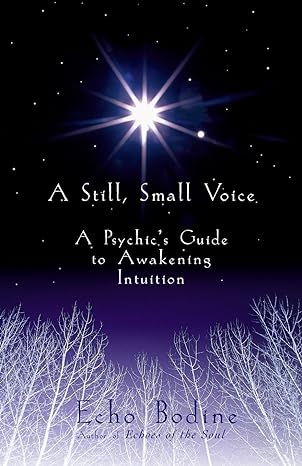
He would then take that rephrasing, put it into a Google Doc, and study it so that when a situation arose where something needed to be pulled from that, he could just take it from his memory because he would study the Google Doc. I’m going to start doing this on my own. I will start practicing this myself because I think it’s pretty cool.
That reminds me of a long time ago. I watched a video of Rich Schefren explaining his learning process. He would read books, highlight them, then cut the binding off, pull the highlighted pages out, take only those pages that had highlighting, and put them in a separate bound book.
Then, all these books on the same topic would be bound together, just those pages that had his highlighting on them, and he would be able to speed-read through those and consume a ton of information. The second go-around reinforces learning.
One of my favorite things is rereading a book I’ve highlighted because I get the best stuff right away. It’s incredible.
There’s a tool called Readwise that, when you highlight in Kindle, uses those highlights as fodder to give you quotes and wisdom nuggets from the books you’ve read in a daily email.
That’s cool.
It is awesome. I get the daily Readwise email. I read it today, in fact. I don’t know if you’re a fan of Paulo Coelho, the author of The Alchemist, but I love that book. A couple of quotes that came in today are from The Alchemist. Here’s a great one, “There must be a language that doesn’t depend on words, the boy thought. I’ve already had that experience with my sheep, and now it’s happening with people.”
It’s that small voice. You’re just hearing telepathically. The ideas flow from your environment and the people you communicate with or collaborate with. It just spurs these thoughts and ideas. You might’ve read that book ten years ago, but it bubbles the wisdom up to the surface on a daily basis- just a little nugget.
Are you more of a Kindle reader, or do you like more of a physical book?
I prefer a physical book, but I can’t get Readwise to work on a physical book. Even if I don’t highlight in the Kindle book, I just tell it the names of the titles of some of my favorite books. It will take other people’s highlights, bubble those up to the surface, and send them to me in a daily email.
I’m definitely going to go to ‘This podcast is sponsored by Readwise.’
Surround yourself with mentors and grow your knowledge through training and courses to accelerate your journey to success. Share on XReadwise.io. It’s a great tool. They also have a bookmarking app called Readwise Reader. I used to use Pocket as my Chrome extension and Safari extension, which I would bookmark stuff with. But Readwise Reader has an AI that they call Ghostreader. Instead of a ghostwriter, your ghost reader reads it, summarizes it and takes key points and surfaces to the top. It will be on whatever piece of content you’re consuming and you’ve bookmarked.
Whether it’s a YouTube video that processes the transcript and does it to the transcript, a medium article, blog post or whatever, it will just pull the best stuff out of it. You can tag these pieces of content that you’ve bookmarked and do all sorts of stuff.
I share my account log-in to Readwise Reader with my team so that they can pull stuff from that and create a draft of my weekly newsletter for my subscribers. It’s amazing because I put out a ‘Thursday Three’ newsletter each week. So, three things—one intrigued me, one inspired me, and one challenged me. I don’t have to write them. My team does it, and they use Readwise Reader as the source of inspiration for those things that are intriguing, challenging, and surprising.
I used to review every single one before it was published, but then I realized I had such a high-performing team that I didn’t have to do that anymore, so I got out of the way, and stuff just published. I have no idea what I’m “writing” in my weekly newsletter. Occasionally, I’ll look at it, but not usually.
A lot of times, when people are in the service industry, they struggle with building a team. They struggle with finding the right people. What did you do to find the right people for you and build that team?
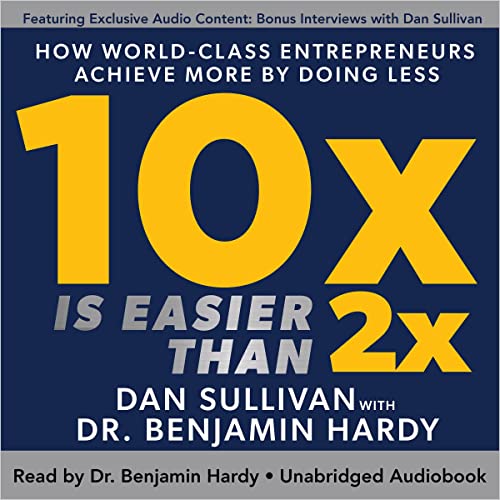
A lot of it has to do with trust. There are processes, systems, tests, assessments and things like that. That’s part of it, but a lot of it has to do with what we discussed earlier: just trusting that the path is already laid out for you and allowing it.
Your business partner was assigned to you, and you chose each other before coming to the earth. If that’s how it works, I need to get out of my way.
I have systems, checks and balances, and all that stuff, too. For example, assess a new hire. Have them do the Kolbe Assessment, StrengthsFinder, and a couple of others, like Dr. Demartini’s Value Determination process and a few others.
We’ll pay for all that, but I think that’s essential. If somebody is likely to be part of my team, I want to know their Kolbe score. Are they a quick start, or are they a fact finder or what? That will help me leverage them to their best ability and not jam a square peg in a round hole. I want to do that before I’ve hired him. I need to make sure I’m making the right hiring decision. But also, I rely a lot on my intuition, as you know.
I love that. It hasn’t led us astray yet; even if it did, it was probably supposed to happen.
Even being led astray is meant to happen, too. That’s the crazy thing. The biggest mistakes and screw-ups in my life have been my biggest teachers. That’s the case for most of us. If you could avoid all those mistakes and do it all differently, would you?
I personally wouldn’t because I’ve learned such incredible lessons. I’ve lost a lot of money making some big mistakes and so forth. But the learning is invaluable, and not having that learning means you could make a much bigger, more costly mistake later on.
One of the craziest things about my life is how one decision could change the direction of it.
One of the craziest things about my life is how one decision could change the direction of it. I could have ended up in a completely different place, and it’s just so crazy.
When you think about everything that led up to you being here, I think that’s crazy. But even me being here and seeing where I’m at now, if I had made one decision differently, like, I might not have met my wife, and if that didn’t happen, then I wouldn’t have done this. It’s just crazy to think that everything could change just on one decision.
My sense of it is that it was already written. It was already destined to occur that you and your wife would meet. It’s just a matter of when that moment is. What are the circumstances that bring you guys together?
It’s like she’s your co-star in your movie and she was hired to be in your movie as your co-star. Whether it’s this scene, the next scene, on a train, a bus, an airplane or whatever, it doesn’t really matter. It’s just that you guys are destined.
I forgot where I heard this from, Stephan, but there are a couple of key tells of somebody you were supposed to meet. I heard this after I met her. But I just remember when I met her, the sound of her voice was just like, it was so crazy to me.
I’d never heard somebody sound like that. It just sounded like somebody that I was supposed to hear. I just loved the sound of her voice. Then I found out later on that that was actually like a sign of somebody that you’re supposed to meet or something. Do you believe in that or have you heard?
I haven’t heard that but that resonates.
It was just so peculiar. But when I heard her voice, I was just like, “Man, this sounds like I don’t know. Is this weird? Anyway, I don’t know.”
Amazing. It’s just so magical. I love this stuff. I love just treating this life, this reality, as a beautiful, elaborate, exquisite video game, movie, play, or whatever analogy fits for you. I just love playing the game and feeling like I’m here to make a difference, reveal light, and I’m just looking for the opportunities that the universe is conspiring to make happen for me so that I can do those things that feel like a mission for me. The revelation of light and making a difference for people.
I think this podcast is such a great blend of business and spirituality. Is there a coincidence between people that are in business and spirituality? I find that a lot of people that are really good at business or entrepreneur-driven type people are also musicians. I don’t know why I’ve found this like synchronicity, but it just seems to me that a lot of people that I’ve met are musicians. Do you find any synchronicities like that?
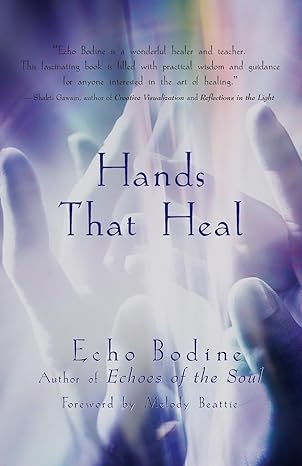
I do find synchronicities, but what you’re describing of people being in the creative arts, I think that makes sense if they’re open to their right brain way of experiencing the world, they like to create, they like to innovate, and they’re doing that on a regular basis, that is going to open up not just their creative centers but it’s going to open up the synchronicities and the chance coincidences.
If you do this from a place of benevolence, like you want to make a difference in the world, I think that is the secret sauce right there. Because you’ll get way more coincidences, synchronicities, serendipities, whatever, by having this desire to be a light in the world.
It’s like a virtuous cycle—more benevolence and synchronicities, which then inspires you to be even more benevolent, which brings you even more synchronicities. Everyone’s on it. It’s a rigged game and everyone’s in on it to make your life the most awesome, inspiring, and revelatory as possible.
I was alluding to maybe some character traits of business people. I think you’re right, right brain. The left brain would be more logical, right?
If you’re in your head a lot, I was very much like that, left brain thinking, very analytical, very calculating. I was not very connected to God. Then I had the spiritual awakening that opened a lot of additional creativity and brought in a lot of miracles, without a doubt miracles that have very low chances of occurring on their own.
That’s a good sign when you’re getting a one in a trillion chance happening thing. Meeting people in a very strange location like, “What are you doing here?” This is the weirdest thing. You felt beforehand that you were meant to have a conversation, but you didn’t end up having it. Then you travel hours away and then you run into them again, that happened. That’s fun.
It’s a beautiful game. I love this. If everyone had this desire to reveal light, cleave to God, and to make the world better, there’ll be world peace and we would just have an incredible renaissance.
It’s a rigged system, though, when you think about the indoctrination of people through schools and stuff like that. If that stuff was actually taught, I think it would be a different ball game for us, Stephan. Maybe in the next podcast, maybe we can just reshape the way that a school system works, and then we’ll take it from there.
I was thinking, “What if there was a school system that actually taught actual skills?” If they taught how to make food, how to build things, and carpentry? I just wish that that was a scenario that we could live in.
Successful video creation always includes a front-end hook. Your videos need to retain viewers for the longest amount of time possible. Share on XIt is rare, but it does happen. There are some magnet schools or special schools that have a very open-minded curriculum. You just have to be on the hunt for it. There’s one locally in the Miami area, Centner Academy, that I saw in The Wall Street Journal get a whole feature story earlier this year.
I felt like this was a school I should tour for my son. He’s not going there at this point. It’s too far away for us to travel daily, 45 or 50 minutes each way, but what an incredible school that would be written up in the Wall Street Journal for being so innovative and everything. It was just really impressive. There are schools out there, and you can also homeschool.
I have an episode on my other podcast, Get Yourself Optimized, where I interviewed an author and an expert on homeschooling. We talked about the different kinds of schooling systems besides public schooling, which is obviously the worst of the bunch. There’s Montessori, Waldorf, Reggio, and a few others. Then, of course, there’s homeschooling and unschooling.
You can always invent something amazing for your kids and have them get the education you wish you had. It’s all possible.
Stephan, can I ask you a quick question that would help your audience greatly?
Okay.
We were talking about, before this and all the previous episodes and stuff like that. What are some of the most impactful advice you’ve gotten from doing this podcast from a business perspective?
That’s really hard. I can’t pinpoint just one thing, but I’ll give you a handful that just popped for me. I learned about nondominant handwriting and how that can access your creative center, like your right brain. That episode was Bill Donius. That was episode 204, and that’s a game-changer there.
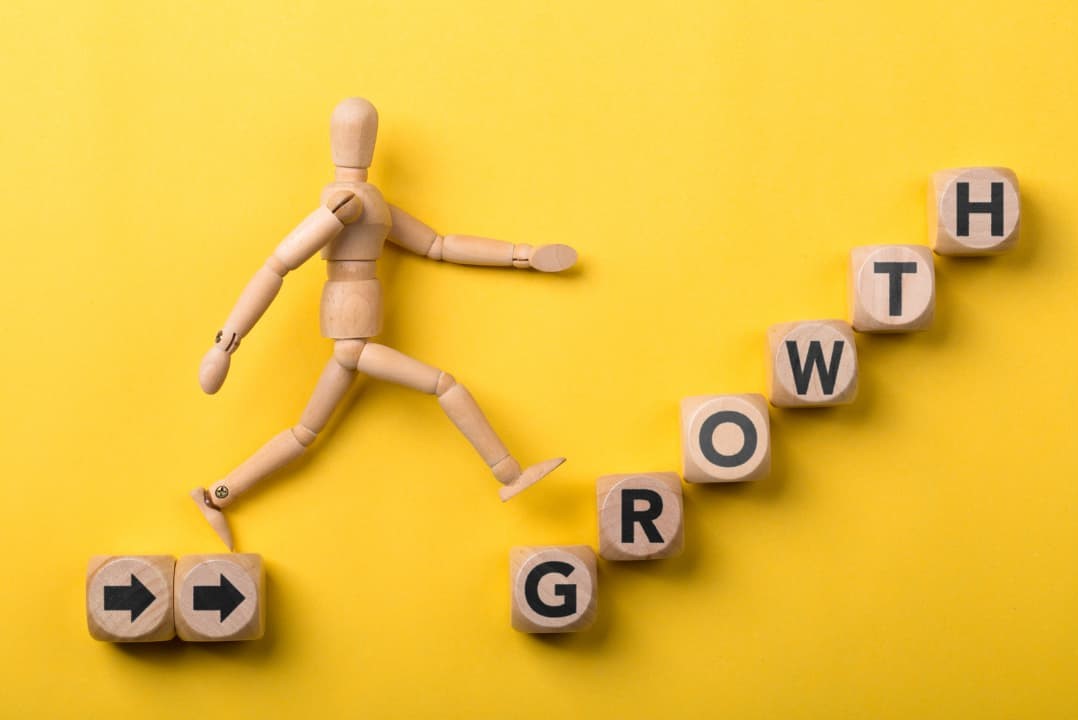
If you tap into your creative center, your right brain, your verbal center is on the left brain, the left hemisphere. If you listen to your thoughts, that’s coming through on the left hemisphere.
If you write with your non-dominant hand with the intention of just receiving something, you’ll write something completely different than what you would have written down. Otherwise, it’s like, “What do I need to do today? Or let’s brainstorm some marketing campaigns and have your left hand start writing.” You’d be surprised what you can come up with. That’s just one example.
Another example of an episode I liked was Seth Godin’s episode. In that interview, he shared stuff I don’t normally hear him say, so it was inspiring to hear his take on more metaphysical topics. I can’t point to anything in particular from that episode that was game-changing, but being able to have that powerful conversation with such a thought leader and a world changer as Seth, ask him anything, and then get answers that he’s probably never given before, that’s pretty special.
That’s my favorite part of being an interviewer: asking piercing questions that allow people to express things they haven’t been able to before.
Some people just podcast to interview their prospects, and then they get business from it. That’s fine, too. There are lots of ways to monetize a podcast or leverage a podcast for business building. For me, I just feel like it’s part of my mission to spread light in the world. Then I just rely on my intuition as to who I have on, when, for which show, what questions to ask and all that.
I love that. I didn’t mean to put you on the spot either with the question, but when you’ve interviewed as many people as you have, I’m sure you’ve got a lot of good answers.
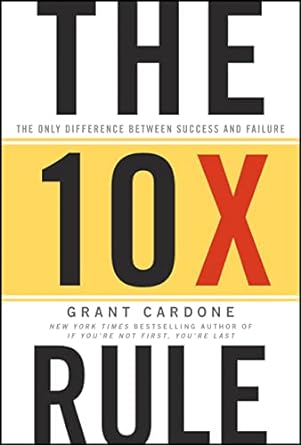
It’s been like over 800 guests, so trying to pick one episode where it’s like, “Yeah, that was a game-changer.” Actually, I’ll give you one example, but it has nothing to do with marketing. It was on my other show. It was on Get Yourself Optimized. I interviewed a psychic medium, and I’d never gotten a reading before.
Did she read you in an interview?
It was a guy, and because he was also like an advertising guy, a copywriter and so forth when I met him in a mastermind called METal, it was a Zoom breakout room, and he mentioned just in passing that he was also a psychic medium. It was like, “What was that last part? I just felt like I had to have this guy on.”
I had cleared my schedule so that I could move to Florida. I was in California at the time. I didn’t have any interviews over three or four weeks, but I felt like I had to have him on. The very hour that I had him on my family member was having a stroke, did not believe it, and was refusing to go to the hospital to get checked. We lived very far away from this person, so we didn’t have much influence to make this person go to the hospital.
But the psychic medium—his name is Mark Nelson—saved her life because he told me with no uncertain terms that, yes, this person was having a stroke. Here’s what will happen if this person doesn’t go to the hospital. That was enough of a push for me to make sure that this person went to the hospital, and sure enough, yeah, it was a stroke.
That’s something that you’ll never forget.
It was meant to be. What are the odds that it would be at the very hour that this person was having the stroke that I was doing the interview? My wife knew I was interviewing a psychic medium because I asked her if she had any questions for him before the interview started. She interrupted in the middle of the interview, slid a piece of paper to me and asked me to ask him to confirm what was happening to this family member. Yeah, it was a stroke. He saved her life.
Wow, it is so cool to me how people read energies and stuff. I don’t know how they do it. Have you read any books or anything on that subject matter?
Oh, yeah, plenty. One book on the topic of healing is called Hands That Heal. It’s by Echo Bodine. It’s a good one. I also like the book by her from her intuition, A Still, Small Voice: A Psychic’s Guide to Awakening Intuition. I’ve had her on my other podcast. I’ve had Echo Bodine on Get Yourself Optimized. Yeah, she’s phenomenal.
Those are two books that have been profound for me. I’ve read so many books on spirituality, psychics, and healing, which is an area of study for me.
I’ve been trying to make it a habit to buy a book every time somebody recommends a book. I’m trying to build my library up, so I’ll just have a whole bunch of books. It’s harder for me to read them as fast as I get them, but you might never hear that good book recommendation again, so I don’t want to lose it.
But you must also be discerning because not every book recommendation is worth your time. You got to go into your heart and listen with your heart. Does this feel right? Does this resonate? If it doesn’t, then don’t bother.
I only get the ones where people are like, “This one changed my life, or this was a must-read.” I’m like, “All right, yeah, but I completely agree.” You have to be discerning.
All right. Well, thank you for such a great, fun interview. If our listener is interested in learning and getting coaching from you, going through your coaching program, taking your courses and so forth, where should we send them?
They can check out pwcourse.com for anything related to the service industry. If you guys are interested in any YouTube coaching I do, you could just message me on Instagram as @foreverselfemployed.
Awesome. Thank you. Justin. You’re an inspiration.
Thank you so much, Stephan. I appreciate it.
And thank you, listener. You have to go out there now and apply some of the amazing wisdom you’ve learned today from Justin to make your life better and those of the people you love. We’ll catch up with you in the next episode. I’m your host, Stephan Spencer, signing off.
Important Links
Connect with Justin Rogers
Apps and Tools
Books
Business/Organization
People
Previous Marketing Speak Episodes
Previous Get Yourself Optimized Episodes
YouTube Channel
YouTube Videos
Your Checklist of Actions to Take










About Justin Rogers
 Justin Rogers is a big YouTuber with over half a billion views. His channel is ForeverSelfEmployed. He has over 700,000 Subscribers. Co-founder of the fastest-growing CRM in the service industry, QuoteIQ.
Justin Rogers is a big YouTuber with over half a billion views. His channel is ForeverSelfEmployed. He has over 700,000 Subscribers. Co-founder of the fastest-growing CRM in the service industry, QuoteIQ.







Leave a Reply